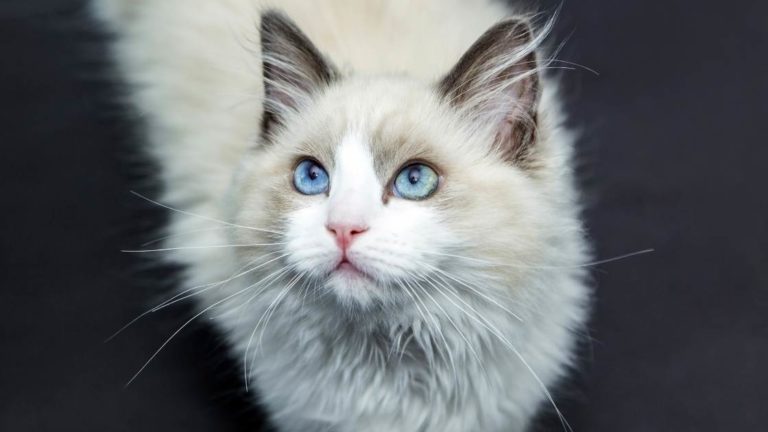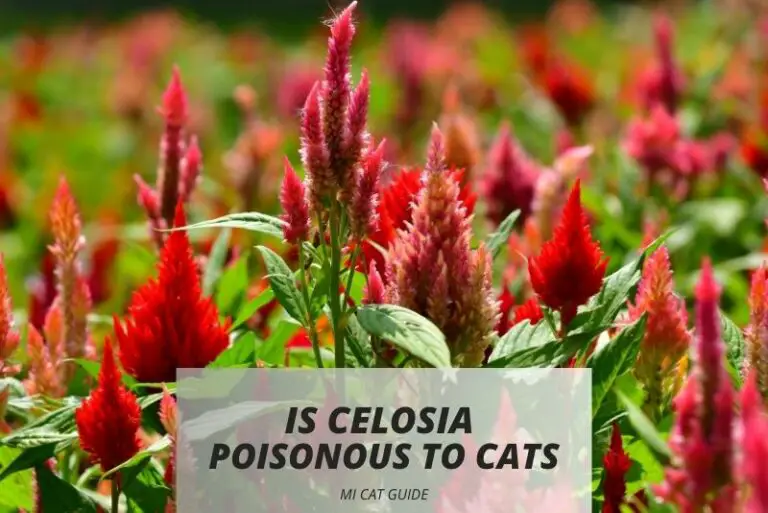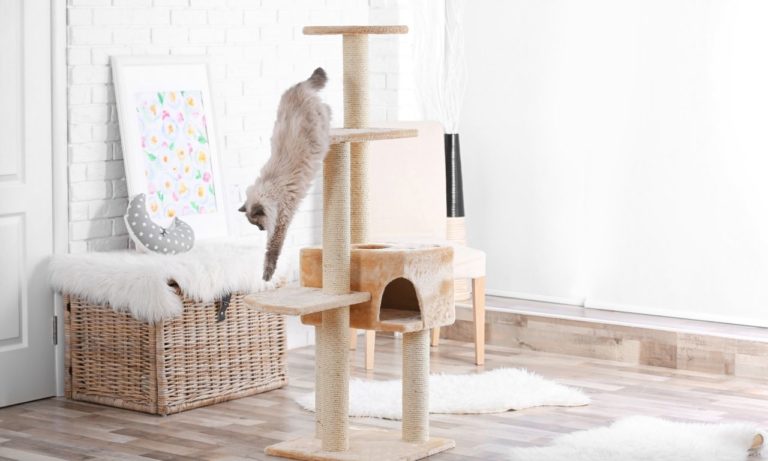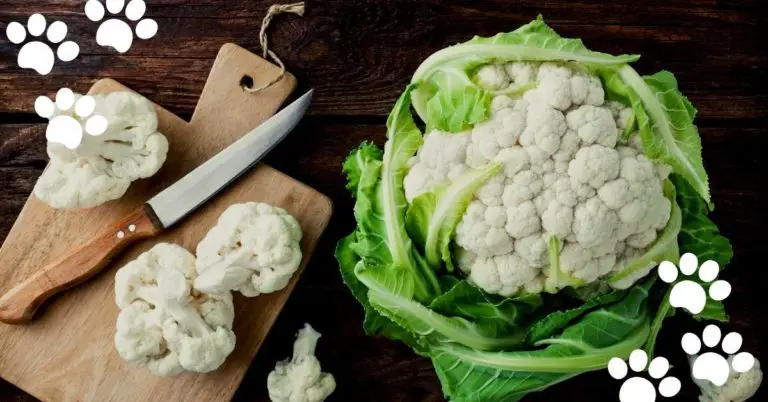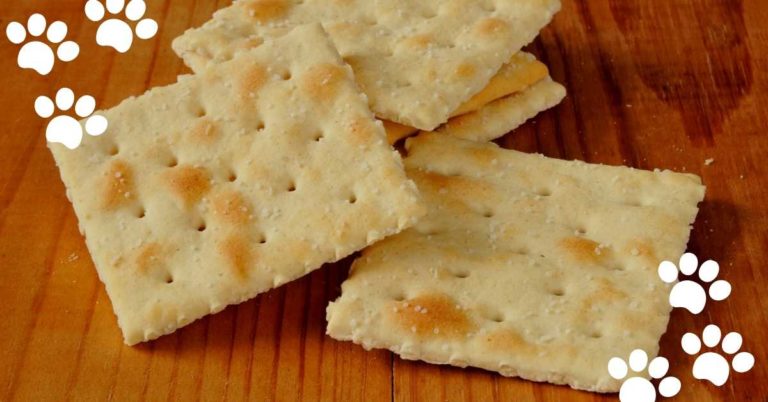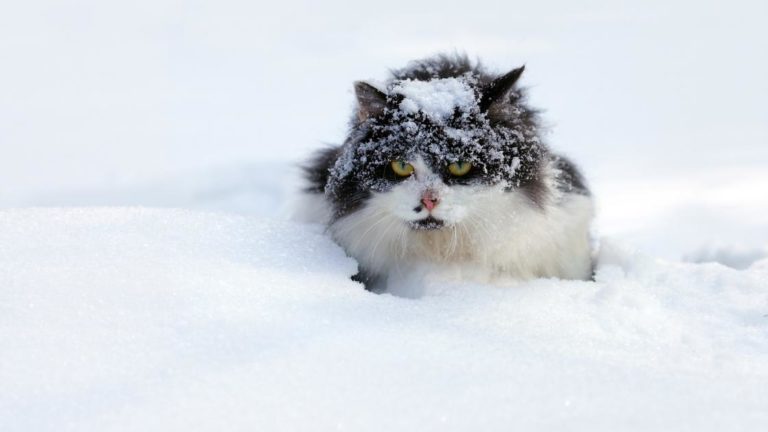How Skinny Can a Cat Get Before It Dies? (My Experience)
As cat owners, we want to keep our furry family members happy and healthy. However, it’s easy to get distracted in our day to day lives and occasionally miss subtle signs that something may be wrong with our cat’s weight.
Many cats are masters of hiding pain or illness, so it can be difficult to know when weight loss has crossed into a dangerous territory. In this post, I’ll explore the important question of how skinny a cat can get before its health is seriously at risk.
We’ll look at the factors that influence a cat’s optimal weight range, signs that weight loss has gone too far, and what steps you should take if your cat seems excessively thin. My goal is to provide cat parents with helpful information and guidance so we can all keep our cats at a size that supports their overall well-being.
Skinny And Worried about Your Cat Dying!
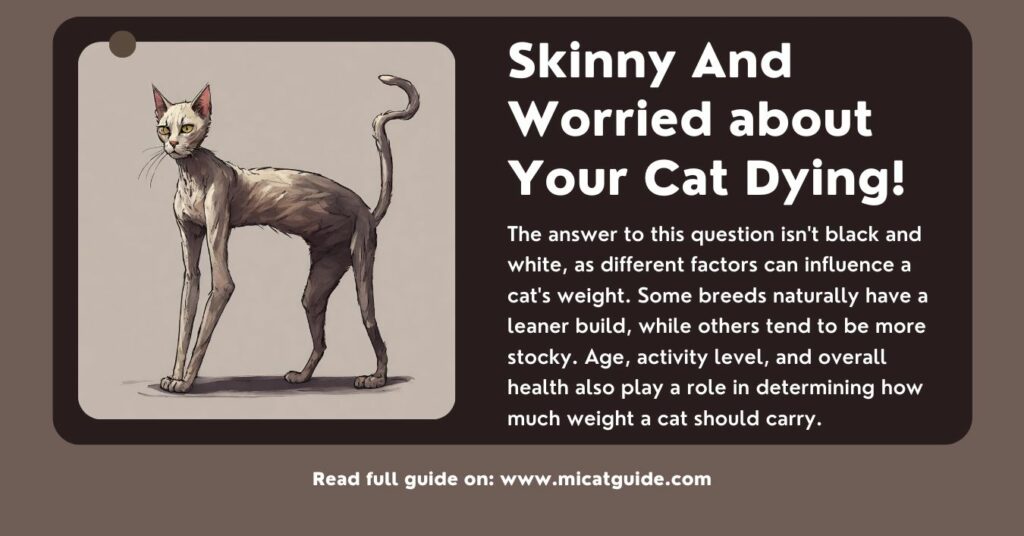
As an aged cat parent, I can look back at the cats we’ve had over the years and say with confidence that healthy weight maintenance is not a one-size-fits-all proposition. Just like humans, every cat has its own ideal weight range based on factors such as age, breed, and overall health. But how can you tell if your cat is too skinny and at risk of health complications?
The first step is to understand what the “normal” weight range looks like for your cat. Most domestic cats should weigh between 8-10 pounds, depending on their breed and body type. However, this is just a general guideline – some breeds may naturally be heavier or lighter, and individual cats may fall outside of this range without any health concerns.
To get a more accurate idea of your cat’s ideal weight, consult with your veterinarian. They can perform a physical exam and consider factors like muscle mass and body composition to determine the best weight range for your specific cat. It’s also important to monitor your cat’s weight over time, as sudden or excessive weight loss can be a sign of underlying health issues.
So, how skinny is too skinny for a cat? If you can easily feel your cat’s ribs and spine just by lightly pressing on their sides, it may be a sign that they are underweight. Other signs to watch out for include visible hip bones or sunken features around the face and shoulders. If your cat’s weight has noticeably decreased and they are exhibiting any of these signs, it’s time to visit the vet for a thorough check-up.
Signs That Your Cat is Dying Due to Weight Loss
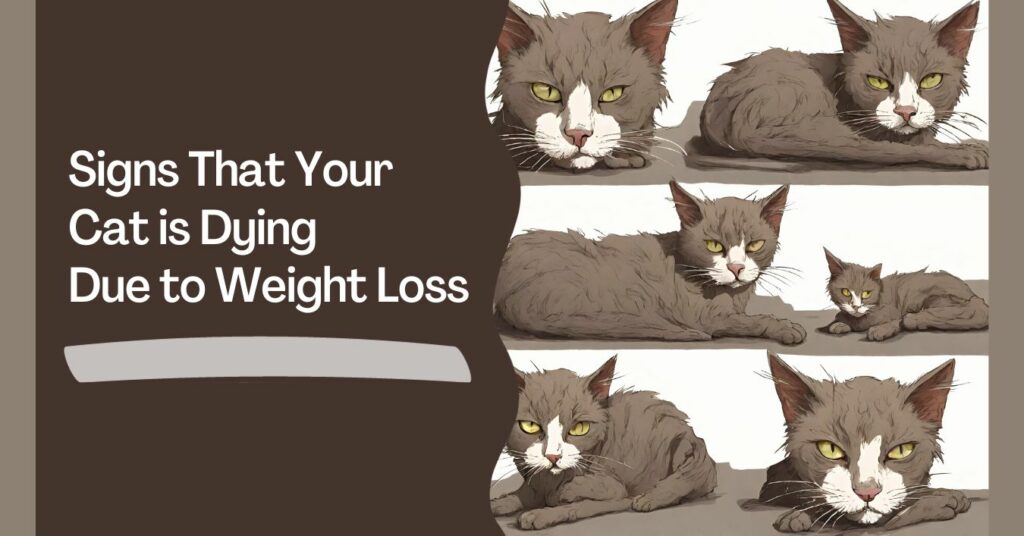
Sorry for the alarming subheading, but it’s important to address this concern head-on. While weight loss is a common symptom of many health issues in cats, it does not necessarily mean that your cat is dying. But if left untreated, severe weight loss can lead to serious health complications and even death in cats. Here are some warning signs that your cat’s weight loss may be reaching a dangerous level:
a. Visible Bones or Protruding Ribs
I can still remember the first time I noticed my cat’s ribs starting to show. I immediately panicked and rushed her to the vet, only to find out that it was normal for a healthy, active cat to have visible ribs when standing or stretching.
However, if your cat is not particularly active and its bones are becoming more prominent even when relaxed, this could be an indication of dangerously low body fat. Now the most important question is, how drastic is “drastic?” Well, it really depends on your cat’s baseline weight and body condition. Any unexplained weight loss of 10% or more should be cause for concern.
b. Excessive Thinning of Muscles
As predators, cats rely on their strong muscles to hunt and catch prey. Thus, a noticeable loss of muscle mass can be a sign that your cat is not getting enough nutrition to maintain its body weight. Additionally, muscle wasting can also occur due to underlying medical conditions or lack of exercise. If you notice your cat’s body shape becoming more angular and its muscles appearing flat or sunken, it’s time to consult with a veterinarian.
c. Sunken Appearance in the Eyes or Face
My cat has always had round, bright green eyes that light up every time she sees me. However, when she lost a significant amount of weight due to an illness, her eyes appeared sunken and sad. This was not just because the fat around her eyes had disappeared, but also because she was dehydrated from not eating enough. A sunken appearance in the eyes or face can be a serious warning sign of malnutrition in cats.
Signs That Weight Loss Has Gone Too Far!
While weight loss can be a natural part of aging for cats, it’s important to monitor their weight and overall health to ensure they are not becoming too skinny. Here I’ll outline some signs that your cat may be too thin and in need of medical attention.
a. Changes in Eating Habits or Appetite
A decrease in appetite and changes in eating habits can also indicate that your cat is too thin. If you notice your cat is eating less or avoiding their food altogether, it could be a sign of an underlying health issue. Conversely, an increase in appetite and excessive hunger can also be a red flag for weight loss. It’s important to keep track of your cat’s eating habits and report any significant changes to your veterinarian.
b. Dull Coat and Hair Loss
A healthy cat will have a shiny and smooth coat, so if you notice your cat’s fur is becoming dull or they are experiencing hair loss, it could be a sign of malnutrition. Cats require certain nutrients to maintain a healthy coat, and rapid weight loss can deplete these essential vitamins and minerals.
c. Lethargy and Weakness
Cats are naturally curious and playful animals, so if you notice your cat is suddenly lethargic and lacking energy, it could be a sign that they are too skinny. Weight loss can cause muscle atrophy and weakness, making it difficult for cats to maintain their usual level of activity. If you notice your cat is unusually sluggish or uninterested in playtime, it’s important to consult with your veterinarian.
Why It’s Dangerous for Cats to Be Underweight?
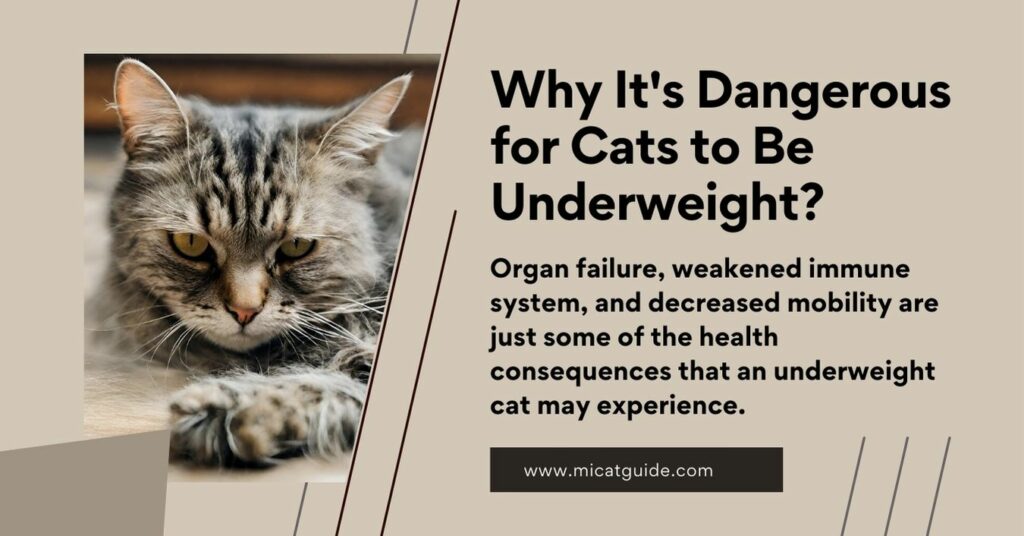
Cats are natural predators and have a higher body fat percentage than other animals. This means that they rely on stored energy reserves for hunting and surviving in the wild. In domesticated cats, being underweight can lead to serious health issues such as:
a. Organ Damage (Especially Liver and Kidneys)
Without enough body fat, a cat’s organs may not have the necessary protection and support. This can lead to damage and dysfunction, especially in vital organs like the liver and kidneys. In severe cases, this can be life-threatening for your cat.
b. Weak Immune System
Being underweight weakens a cat’s immune system, making them more susceptible to infections and illnesses. This is because their body doesn’t have enough energy reserves to properly fight off disease and maintain their overall health. As a result, underweight cats may experience frequent illnesses and take longer to recover.
c. Poor Skin and Coat Health
A cat’s coat and skin are important indicators of their overall health. When a cat is underweight, they may lack the necessary nutrients to maintain a healthy coat and skin, leading to dryness, hair loss, and other issues. This can also make them more vulnerable to skin infections and parasites.
Is Skinny is Recoverable for an Old aged Cat?
When you searched this topic, you may have been worried about an older cat in your life who seems to be losing weight. As cats age, their metabolism slows down and they may become less active. This can lead to gradual weight loss over time. However, it’s important to note that this is not always a normal part of the aging process – sudden or excessive weight loss should still be a cause for concern.
If your old aged cat is losing weight, it’s crucial to take them to the vet for a thorough check-up. With proper diagnosis and treatment, many underlying health conditions can be managed or even reversed. Your vet may also recommend dietary changes or supplements that can help your cat maintain a healthy weight and support their overall well-being as they age.
Challenge I Faced to Maintain A Healthy Weight for My Cat
As mentioned earlier, maintaining a healthy weight is not a one-size-fits-all task, especially for older cats. Here I’ll provide all the challenged I fought to help my aged cat maintain a healthy weight, and you can pick up some tips for your own feline friend.
a. Changes in Appetite
As cats age, they may develop changes in appetite – they may eat less or lose interest in food altogether. This can be due to various reasons such as dental issues, underlying health problems, or simply a decrease in activity level. To combat this, it’s important to provide your cat with high-quality, nutrient-dense food and monitor their intake closely. If you notice a significant decrease in appetite, consult with your vet for further guidance.
b. Mobility Issues
Arthritis and other age-related conditions can make it difficult for older cats to move around and exercise. This can lead to weight gain in some cases, but it can also contribute to weight loss if the cat is unable to reach their food or move around easily. To help your aged cat maintain a healthy weight, consider providing them with raised food and water bowls, as well as comfortable places to rest that are easy for them to access.
c. Dental Health
Dental issues are common in older cats and can make eating painful or uncomfortable. This can lead to a decrease in food intake and contribute to weight loss. To help maintain your cat’s dental health, provide them with regular teeth cleanings and consider switching to softer foods if necessary.
What to Do If Your Cat Seems Too Skinny?
If you notice any of these signs in your cat, it’s important to take action and consult with your veterinarian. Your vet can help determine the underlying cause of weight loss and develop a plan to get your cat back to a healthy weight. Here I’ll outline a few steps you can take to help your cat regain weight and improve their overall well-being.
1. Visit Your Veterinarian
The first step is to schedule a visit with your veterinarian so they can perform a thorough examination of your cat. They may also recommend blood work or other diagnostic tests to identify any underlying health issues that could be causing weight loss.
2. Adjust Your Cat’s Diet
Your veterinarian may recommend adjusting your cat’s diet to ensure they are getting the proper amount of nutrients and calories. They may also suggest a prescription diet or supplement to help with weight gain. It’s important to follow your vet’s recommendations and not try to increase your cat’s weight too quickly, as this can lead to other health issues.
3. Monitor Your Cat’s Progress
Keep track of your cat’s weight and overall progress as they work towards a healthy weight. You may need to make further adjustments to their diet or activity level if necessary, based on their response to the current plan. It’s important to be patient and consistent in helping your cat regain weight, as it may take some time for them to reach their optimal weight.
4. Provide Extra TLC
Lastly, make sure to give your cat plenty of love and attention during this process. Weight loss can be stressful for cats, so it’s important to provide extra comfort and affection as they work towards regaining their health and energy. With proper care and monitoring, your cat can reach a healthy weight and live a happy and active life.
Is Skinny Cat During Old Aged Normal?
Weight loss in older cats is a common concern among cat owners, and it’s important to take this issue seriously. By being aware of the potential causes and challenges that come with maintaining a healthy weight for an aged cat, you can help your feline friend live a long and healthy life. Here is a table of different breed types and their corresponding ideal weight range, provided by the Association for Pet Obesity Prevention (APOP):
| Breed Type | Ideal Weight Range |
|---|---|
| Siamese | 8-12 lbs |
| Maine Coon | 9-18 lbs |
| Persian | 7-12 lbs |
| Sphynx | 6-12 lbs |
| Russian Blue | 5-11 lbs |
| Bengal | 8-15 lbs |
It’s important to note that every cat is unique and may not fit into these weight ranges perfectly. Consult with your veterinarian for a personalized weight management plan for your specific feline friend.
Going to End the Content
In conclusion, weight management is an important aspect of caring for your aged cat. By being aware of potential challenges and taking proactive steps to maintain a healthy weight, you can ensure that your feline friend stays happy and healthy well into their senior years.
Remember to consult with your veterinarian if you have any concerns or notice significant changes in your cat’s weight, as they can provide valuable guidance and support. With proper care and attention, your cat can thrive at any age.
So keep loving and caring for your feline companion, and watch them age gracefully with you by their side. Happy pet parenting! Meow! (That’s my cat Gremlin saying thank you.) 😸 Signed, a proud and happy cat parent.

